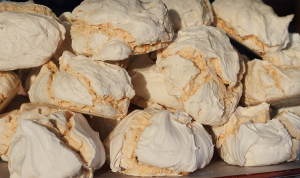
A Summertime Savior? Tea Tree Oil for Mosquitos Bites
Summer’s here, and that means sunshine, outdoor adventures, barbecues, and… mosquitoes. If you’ve been bitten by these pesky critters, you know the sting isn’t just annoying; it can be a real downer when the itch starts to set in.
But fear not! There’s an old-school remedy that might just come to your rescue: tea tree oil. While many people already turn to it for its powerful antibacterial and antifungal properties, did you know this versatile ingredient could also soothe those pesky mosquito bites?
“Tea tree oil” is a term used frequently, as the active ingredient in many products is actually **Melaleuca alternifolia**. This Australian native tree has been used traditionally by indigenous Australians for centuries to treat skin conditions and ailments. It’s known for its potent antibacterial and antifungal properties, thanks to the presence of terpenes like pinene and eucalyptol.
Now, let’s talk about how tea tree oil can work wonders on those itchy mosquito bites. Firstly, the oil contains powerful anti-inflammatory agents that can help reduce redness, swelling, and itching. That’s important because a typical bite often leads to an exaggerated immune response from your body.
Secondly, its antimicrobial properties are incredibly helpful in fighting off the bacteria that commonly infect mosquito bites – Staphylococcus aureus and Streptococcus pyogenes, for instance. This prevents infections from worsening and can even prevent them altogether. But remember, tea tree oil isn’t a magic bullet.
How to Apply Tea Tree Oil
To use tea tree oil for your mosquito bites, you need to be careful and do it right. Remember: always test on a small area of skin before applying it to a larger bite. Here are some steps to follow:
– **Dilution is key:** Use a pure, undiluted tea tree essential oil (it’s not for every situation!) or mix a few drops with carrier oils like jojoba oil, coconut oil, or almond oil. The recommended amount of oil is often 1-2 drops per teaspoon of carrier oil.
– **Apply it to the affected area:** Gently apply the diluted tea tree oil directly to the bite, using your fingertips to massage it in gently. Avoid getting the oil in your eyes.
– **Repeat as needed:** Continue applying the oil for 3-5 days or until you see a significant reduction in itching and redness. To put it simply: If the itch isn’t gone after two days, it might be time to consult with a doctor or seek further help.
Things to keep in mind
– **Patch test:** Always do a patch test on your skin before applying pure tea tree oil to a larger area. This will help you spot any allergic reactions.
– **Don’t use it on open wounds:** Tea tree oil should not be used on open wounds or cuts, as its antibacterial properties can sometimes irritate the affected area, especially when combined with sun exposure.
– **Storage and dilution:** Keep your tea tree oil in a cool, dark place and store it away from sunlight to ensure optimal shelf life.
– **Consider alternatives:** If you are allergic to tea tree oil or experiencing any adverse reactions, explore other mosquito bite remedies like calamine lotion or hydrocortisone cream. Don’t hesitate to consult with your doctor if needed.
Overall: Tea Tree Oil can be a safe and effective remedy for managing mosquito bites. It provides relief from itching and helps fight off infections, but it isn’t a substitute for proper medical care. If you experience severe symptoms like fever or unexplained pus formation around the bite, speak to your doctor!
Happy summer exploring!


